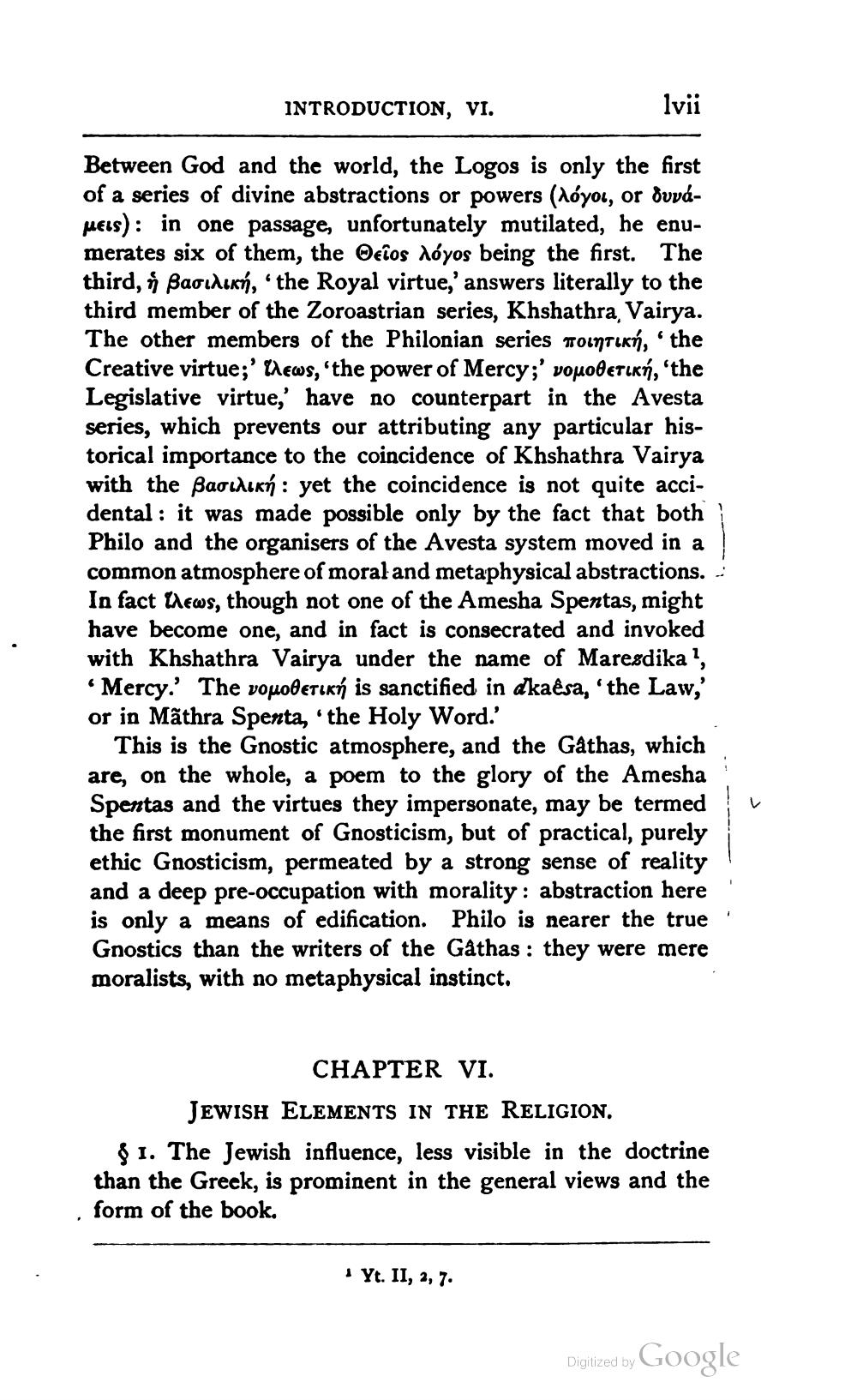________________
INTRODUCTION, VI.
Between God and the world, the Logos is only the first of a series of divine abstractions or powers (λóyol, or dvváMeis) in one passage, unfortunately mutilated, he enumerates six of them, the Oetos λóyos being the first. The third, Bariik, 'the Royal virtue,' answers literally to the third member of the Zoroastrian series, Khshathra, Vairya. The other members of the Philonian series TOINTIKŃ,' the Creative virtue;' News, 'the power of Mercy;' voμobeTIKŃ, 'the Legislative virtue,' have no counterpart in the Avesta series, which prevents our attributing any particular historical importance to the coincidence of Khshathra Vairya with the Bariliký: yet the coincidence is not quite accidental: it was made possible only by the fact that both Philo and the organisers of the Avesta system moved in a common atmosphere of moral and metaphysical abstractions. In fact Lews, though not one of the Amesha Spentas, might have become one, and in fact is consecrated and invoked with Khshathra Vairya under the name of Maresdika1, 'Mercy.' The voμobeтIKý is sanctified in akaêsa, 'the Law,' or in Mäthra Spenta, 'the Holy Word.'
lvii
This is the Gnostic atmosphere, and the Gâthas, which are, on the whole, a poem to the glory of the Amesha Spentas and the virtues they impersonate, may be termed the first monument of Gnosticism, but of practical, purely ethic Gnosticism, permeated by a strong sense of reality and a deep pre-occupation with morality: abstraction here is only a means of edification. Philo is nearer the true Gnostics than the writers of the Gâthas: they were mere moralists, with no metaphysical instinct.
CHAPTER VI.
JEWISH ELEMENTS IN THE RELIGION.
§ 1. The Jewish influence, less visible in the doctrine than the Greek, is prominent in the general views and the form of the book.
1 Yt. II, 2, 7.
Digitized by
Google




